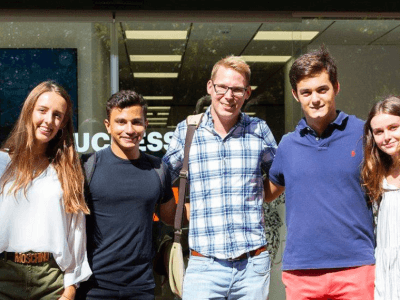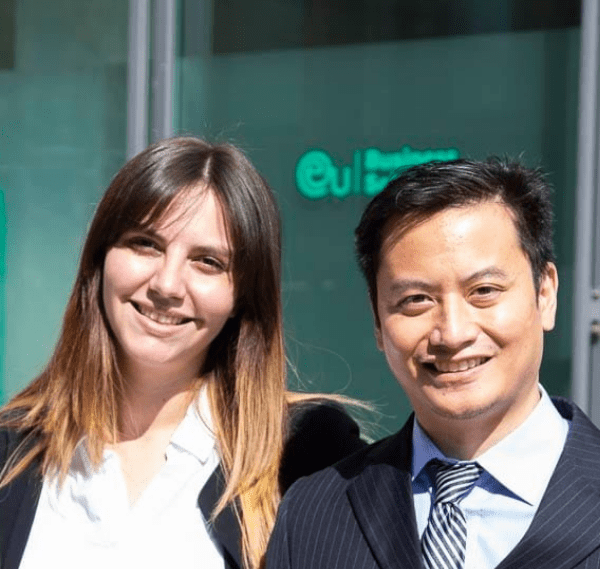5 Actions That You Can Take to Compensate for the Learning Loss Due to COVID-19
COVID-19 has had a huge impact on the world of education. Institutions at all levels were forced to shut for prolonged periods, meaning that course provision was much more likely to be 100% virtual. The traditional student experience, in turn, changed dramatically. Of course, all students have different learning styles. Some may even be new to the medium of virtual learning, so they’ve had to adapt to these unexpected circumstances.
Thankfully, there are actions that students can take independently to compensate for any potential learning loss. Here are five ideas that can be easily implemented to enrich your educational experience during this period.
1. Maximise the Benefits of Your Online Classes
Dont hestitate to contact course tutors with any doubts you have related to your online lessons. You can do this via email, telephone or during class. It’s your right as a student to ask questions. And don’t be embarrassed to ask them frequently in the virtual learning environment either: very often, you will be asking a question that other students need answered too. Course tutors are grateful to receive relevant questions, they help them deliver a more informative lesson, and they make classes more engaging and interactive.
Similarly, if you feel the format of your online class could be adapted to better meet your needs, why not make a suggestion? For example, if you like to make written notes during classes, maybe you’d benefit from a copy of the slides in advance to print and annotate. You’ll find that course tutors are willing to do what they can to accommodate your particular learning style.
2. Commit to a Reading List
Reading widely is a time-tested way to build your knowledge on specific subjects. Your reading list doesn’t need to consist of heavy tomes either, although it can if you want it too. An easier way to diversify and develop your reading material is to incorporate a mixture of mediums: journal articles, industry magazines, social media posts and academic books. This activity can be made pleasurable so it doesn’t become just another responsibility to manage. One way to make it so is to follow experts in your field of study and save the articles they share. Commit to reading one a day while you enjoy your morning coffee. Alternatively, you could take a book to the park and spend half an hour reading in fresh air, enjoying a much-needed screen break.
If you’re not sure where to start with an extracurricular reading list, you can always consult your course tutors. They’re able to provide recommendations that are relevant to your field of study. Rather than just passively reading, try to respond to what you read as well; this makes the process more educationally valuable. You could start a blog, for example, and set the target of writing one short post each day reflecting on what you’ve read. Sharing the blog publically may be a good way to keep yourself accountable, and it could even reach some influential or interesting people in your network, stimulating a dialogue.
3. Learn from your Peers
One of the things students seem to miss the most about pre-pandemic learning is the opportunity to connect with their peers and discuss what they are studying. Although classrooms are closed, there are still opportunities to learn from, and share ideas with, likeminded people. Thanks to platforms like Zoom and Microsoft Teams, online group conversations are easily organized. These events don’t have to be university-endorsed, either. Why not contact some people from your course and see if they’d like to join an unofficial “study support” group?
At EU Business School, when the pandemic hit students transitioned to a new on-campus hybrid learning approach, combining the best of digital and face-to-face learning. Maintaining an interactive environment where students could continue to work with, and learn from, their peers was a priority. Using Moodle, the word´s leading e-learning platform, enabled collaboration and conversation to continue. With an international student body, being able to learn from each other’s unique perspectives, to grow a diverse and global network, was an important aspect of the student experinece.
Forming relationships with your classmates, even at a distance, has multiple benefits. They may become important contacts in your future career. They’re likely to inspire you with ideas you hadn’t considered. Lastly, they are best placed to provide the emotional support you need on difficult days when you’re finding your studies especially challenging.
4. Incorporate Learning into Leisure
If you have a demanding schedule, the prospect of adding more educational activities into your daily routine may be off-putting. However, there are ways to make learning feel like leisure. When it comes to television time at night, look for an engaging documentary related to your field of study. When you’re out walking your dog, take advantage of the time to listen to a podcast by experts in your field.
Try to resist the idea that learning only occurs when you’re reading and writing official course materials. A learning log where you scribble down insights gleaned from alternative mediums will soon show you that there are many ways to study a subject. The best approach incorporates a range of strategies, therefore keeping you motivated and engaged.
5. Supplement Learning with Events and Courses
In response to the worldwide scramble to embrace virtual learning, there are now more online courses available than ever before. If you’d like to enhance your knowledge on a particular element of your course, it’s likely that you’ll be able to find a resource online to support your learning. Check the LinkedIn feeds of influencers in your field of interest. You may also find that there are interesting online talks or conferences that are free to attend.
If you’ve identified a particular weakness in your skills and knowledge; for example, in essay-writing or in research, it’s possible to find a private tutor who can help you improve in these areas. Depending on local restrictions, you could meet your tutor online or in-person.
Compensate the Learning Loss at EU Business School
Although studying in the time of COVID-19 may look different to before, there are still many opportunities to enrich your education. Proactive students are able to follow the advice above and curate an educational experience that not only meets their course needs, but also suits their learning style.
EU Business School offers short term, intensive courses through its Summer School program, and they represent a great opportunity to compensate for any learning loss due to COVID-19 restrictions. There is the option to study online or to study on-campus in Barcelona. The prospect of combining travel with learning is bound to be popular with students who missed out on the international student experience they’d hoped for last year.










